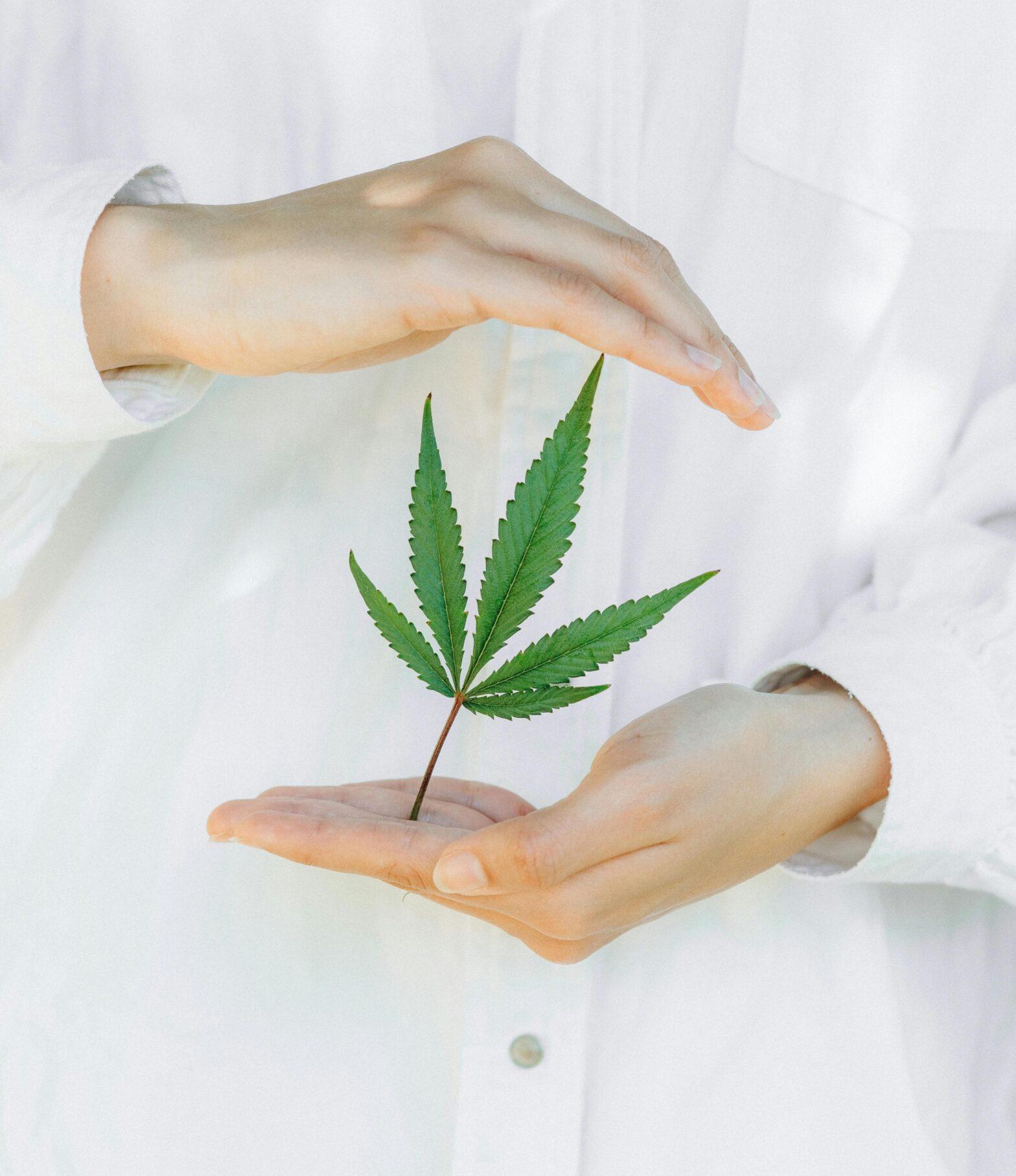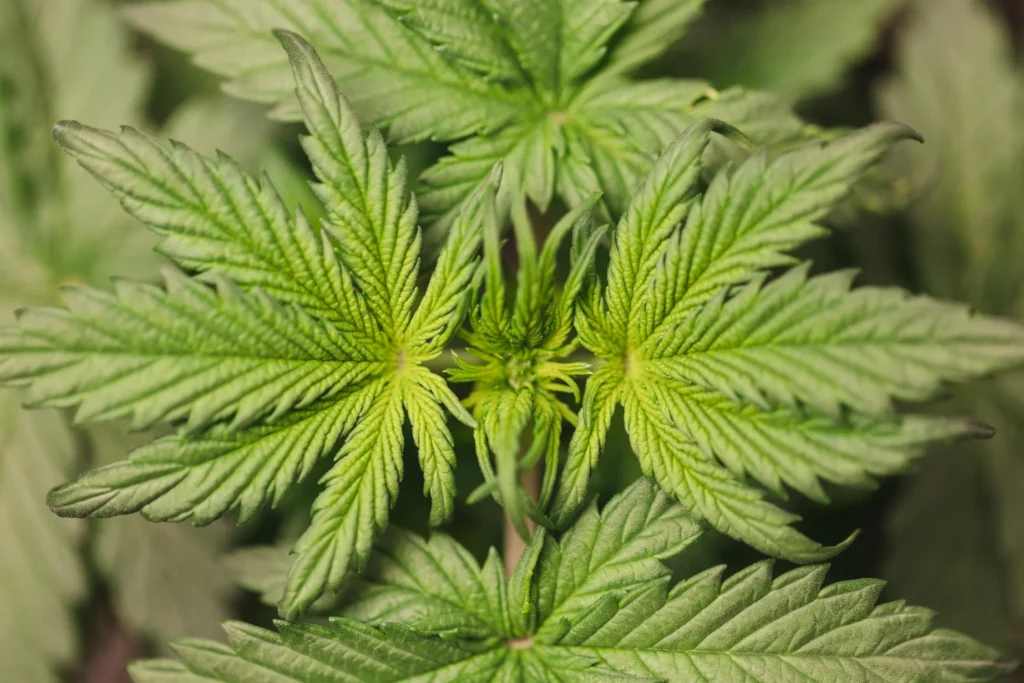
What Is Organic Hemp? A Full Guide
3/19/2024
Innovation & Production
Contents
Organic Hemp Defined
Benefits of Organic Hemp
Certification Process
The Difference Organic Makes: Quality and Safety
Organic Hemp Products on the Market
Choosing Organic Hemp: What Consumers Need to Know
Recently, ‘organic” has become more than just a buzzword. Especially when talking about agriculture, food and fabrics. We’ve also seen an increase in the popularity and uses for hemp.
So what is organic hemp?
It represents the choice and commitment to sustainable farming practices and product quality that benefits both the environment and consumers.
As the demand for eco-friendly and health-conscious products continues to rise. It’s crucial to understand what sets organic hemp apart.
Let’s learn more about the world of organic hemp, shedding light on its cultivation, certification, and the myriad benefits it offers.
Organic Hemp Defined
Before we look at its cultivation process and uses, we must answer the question: What is organic hemp?
In the lush fields of sustainable agriculture, organic hemp stands as a beacon of conscientious cultivation. Organic hemp refers to the cultivation of hemp plants without the use of synthetic pesticides, herbicides, or genetically modified organisms (GMOs).
Embracing a holistic approach, organic hemp farming seeks harmony with nature. It prioritizes soil health, biodiversity, and sustainable practices.
Distinction from Conventional Hemp
Diverging from its conventional counterpart, organic hemp sets itself apart through a commitment to purity and environmental stewardship. Unlike conventional hemp farming, organic hemp cultivation champions a more natural and environmentally friendly approach.
This distinction not only affects the end product but also reflects a dedication to minimizing the ecological footprint of hemp production.
Key Principles of Organic Hemp Farming
- Soil Health and Crop Rotation: Organic hemp farming begins with nurturing the very foundation—the soil. Practices like crop rotation and cover cropping are employed to maintain soil fertility naturally.
This not only enhances the quality of the hemp plants but also contributes to the overall health of the agricultural ecosystem.
- Pest and Disease Management: Rather than resorting to chemical interventions, organic hemp farmers utilize biological controls, companion planting, and other natural methods to manage pests and diseases. This approach safeguards the delicate balance of the environment while ensuring the health and vitality of the hemp crop.
- Non-GMO Seeds: The use of non-genetically modified (non-GMO) seeds is a fundamental principle in organic hemp farming. This upholds the integrity of the plant’s genetic makeup. It ensures that the end product remains free from the genetic modifications often associated with conventional agricultural practices.
Embracing these key principles, we see that organic hemp farming produces a cleaner, more sustainable crop. It also encapsulates a commitment to the well-being of both consumers and the planet.
Environmental Impact
- Reduction of Chemical Usage: Organic hemp cultivation signifies a departure from the reliance on synthetic chemicals. By eliminating the use of pesticides and herbicides, farmers contribute to a cleaner environment. They, in turn, reduce the ecological footprint associated with conventional hemp farming.
This conscious choice not only benefits the earth but also ensures a purer end product for consumers.
- Conservation of Biodiversity: In the sprawling fields where organic hemp thrives, a rich tapestry of biodiversity unfolds. By avoiding the disruptive impact of chemical substances, organic hemp farming becomes a sanctuary for diverse flora and fauna.
This commitment to biodiversity not only enhances the resilience of ecosystems but also paints a portrait of sustainable agriculture that goes beyond the cultivation of hemp alone.
Benefits of Organic Hemp
In the dance between soil and sky, organic hemp emerges not just as a crop but as a guardian of the environment and a benefactor of human well-being. It enriches the earth beneath our feet to nourish our bodies with wholesome goodness.
The benefits of organic hemp resonate far beyond the fields where it gracefully sways.

Environmental Advantages
- Soil Regeneration: In the organic ballet of hemp cultivation, the stage is set for a transformative act—soil regeneration. Organic hemp’s presence breathes life into the earth, enhancing soil structure and fertility.
As the roots intertwine with the soil, they become agents of regeneration, leaving behind a rejuvenated landscape that stands testament to the sustainable dance of nature.
- Carbon Sequestration: Nature’s climate warrior, organic hemp takes center stage in the battle against climate change. Through a process known as carbon sequestration, hemp absorbs and locks away atmospheric carbon dioxide in its fibers and soil.
This environmental superhero not only mitigates the impact of greenhouse gasses but also contributes to the restoration of a balanced carbon cycle.
Health Benefits
- Nutrient-Rich Composition: Organic hemp emerges as a nutritional powerhouse, delivering a symphony of essential nutrients. Bursting with protein, omega-3 fatty acids, and a spectrum of vitamins and minerals, organic hemp offers a holistic health package.
From supporting immune function to promoting heart health, the nutrient-rich composition of organic hemp elevates it to the status of a superfood.
- Absence of Harmful Chemical Residues: A sanctuary of purity, organic hemp ensures a clean slate for consumers. By steering clear of synthetic pesticides and herbicides, organic hemp eliminates the risk of harmful chemical residues.
This commitment to a pristine product not only safeguards consumer health but also reflects a dedication to providing an untainted, organic experience.
Certification Process
Importance of Certification
When exploring what organic hemp is, certification stands as the guardian at the gateway to authenticity. Its importance reverberates not only within the industry but also in the homes of conscious consumers.
Certification serves as a seal of trust, assuring consumers that the organic hemp they embrace aligns with rigorous standards. It also shows that the hemp embodies a commitment to purity, sustainability, and ethical practices.
Organic Hemp Certification Standards
Within the intricate tapestry of organic hemp, certification standards form the intricate threads that weave together the fabric of integrity. These standards encompass a spectrum of criteria, from cultivation methods and soil health to processing and labeling.
By adhering to these benchmarks, organic hemp earns its certified status. It embodies a dedication to organic principles that extend from the roots of the plant to the final product.
Recognized Certification Bodies
Certification finds its voice through reputable bodies that uphold the sanctity of organic standards. These certification bodies, recognized globally, serve as the custodians of authenticity. They also ensure that the journey from farm to consumer aligns with the principles of organic integrity.
From the USDA Organic label to other internationally acknowledged certifications, these bodies play a crucial role in building trust and transparency within the organic hemp industry.
Certification is not merely a stamp. It’s a narrative of commitment, accountability, and a shared responsibility towards a sustainable and organic future. The importance of certification becomes a compass guiding us towards choices that resonate with the values of purity and environmental stewardship.
The Difference Organic Makes: Quality and Safety
The distinction between organic and non-organic hemp extends beyond cultivation practices. It also impacts the final product’s quality, safety, and cannabinoid profile.
Organic hemp is grown in cleaner soil, free from toxic residues that can compromise the plant’s purity and the safety of hemp-derived products. This leads to a higher-quality harvest, rich in beneficial cannabinoids and terpenes. Get the benefits without the risk of contamination from pesticides and fertilizers.
Consumers often question whether organic certification affects the potency and efficacy of hemp products, especially those containing CBD. Research indicates that organic farming methods can enhance the nutritional content of the crop. It could also potentially lead to more effective and beneficial products.
By choosing organic hemp, consumers not only ensure their own health and safety but also support farming practices that protect the environment.
Organic Hemp Products on the Market
The versatility of hemp is well-documented, with applications ranging from textiles and construction materials to health and wellness products. The market for organic hemp products is expanding, offering consumers a wide array of choices that align with their values and lifestyle.
From organic hemp seed oil and protein powders to textiles made from organically grown hemp fibers, the options are diverse and growing.
With health and wellness, CBD products derived from organic hemp are particularly sought after. Consumers are becoming increasingly savvy, looking for certifications and labels that guarantee the organic status of their CBD extracts, oils, capsules, and topicals.
These products offer the peace of mind that comes from knowing they’re free of synthetic additives and produced in a way that respects the planet.
Choosing Organic Hemp: What Consumers Need to Know
With more options available, selecting organic hemp is a potent declaration of intent. It embraces both personal well-being and the greater cause of sustainable agriculture.

Navigating this landscape demands an understanding of the nuances, from certifications to the ethos of the brands we choose.
Educating Consumers on Organic Hemp
Before purchasing any products, consumers must first become well-versed in the language of organic hemp. Educating oneself on the principles and practices of organic farming lays the foundation for informed decision-making.
Familiarize yourself with the significance of certifications like USDA Organic or their equivalents in different regions. These seals serve as beacons, guiding consumers towards products that uphold stringent organic standards.
Transparency becomes the torchbearer in this educational quest. Reputable brands willingly share insights into their farming practices, demonstrating a commitment to openness.
Understanding the intricacies of organic hemp cultivation empowers consumers to discern the genuine from the greenwashed. Ultimately, this fosters a relationship of trust with the products they choose.
Making Informed Choices
Armed with knowledge, consumers are equipped to make choices that align with their values. When perusing the aisles or scrolling through online stores, seek out the telltale signs of authenticity—the USDA Organic label or its global equivalents.
These certifications transcend mere symbols. They’re promises that the product in your hands is a result of conscientious cultivation and a commitment to environmental stewardship.
Beyond certifications, explore the stories behind the brands. Investigate their sourcing practices, scrutinize their dedication to sustainability. Brands like Materia Regenerative have a track record in the realm of organic hemp.
By making informed choices, consumers become catalysts for change. They advocate for a shift towards a more sustainable and ethical agricultural landscape.
Supporting Sustainable Agriculture
Choosing organic hemp is not just a personal choice; it’s a vote for sustainable agriculture. It’s a conscious decision to support farming practices that prioritize the health of the planet and its inhabitants.
By opting for organic hemp products, consumers actively contribute to the broader movement for environmental sustainability and ethical agriculture.
Consumers have the power to shape the future of agriculture. The choice to embrace organic hemp transcends the individual act of purchase. It becomes a collective effort towards a greener, healthier, and more sustainable world.
As consumers, wield your purchasing power with purpose. Make choices that echo beyond your daily lives and resonate with the harmonious rhythm of organic cultivation.
Conclusion
Organic hemp is a green powerhouse, where environmental care, top-notch product quality, and your well-being converge. With an increased interest in sustainable and ethically crafted goods, organic hemp emerges on top. It is a shining example of what happens when we prioritize the health of our planet and ourselves.
Are you exploring hemp for its industrial applications, health benefits, or positive environmental footprint? Opting for the organic route is a significant stride toward a more sustainable and healthier future.
If you’re curious about hemp’s versatility or its potential to promote well-being, choose organic. It isn’t just a preference but a commitment to a cleaner, greener lifestyle.
Explore the possibilities at Materia Regenerative, your trusted source for high-quality, certified organic hemp extracts and products. Here, values align with needs, offering a bridge to a world where the choices you make contribute to a harmonious relationship between humanity and the Earth. Contact us for the highest quality organic hemp, where every decision shapes a brighter, more sustainable tomorrow.




